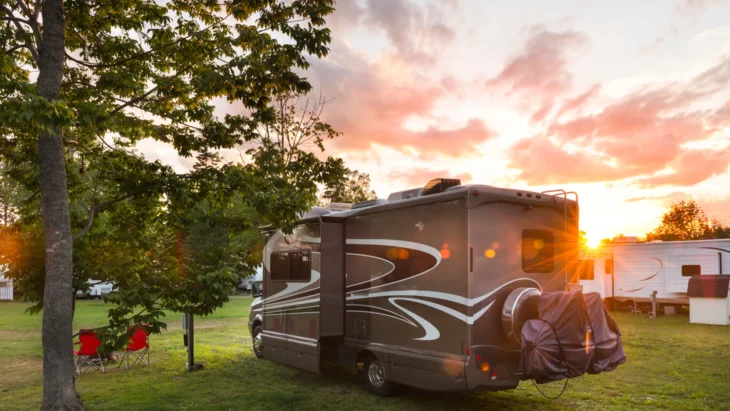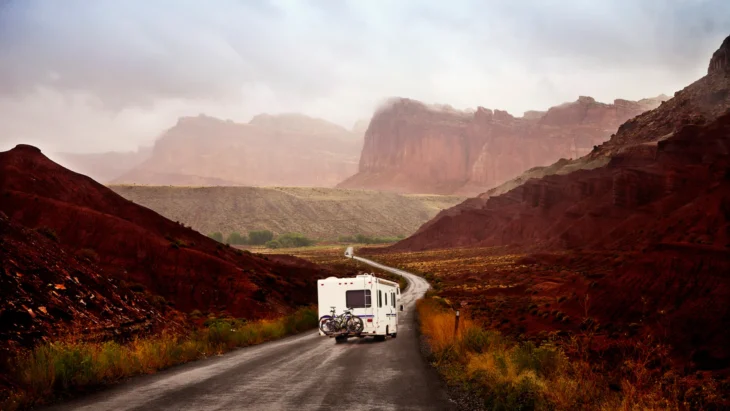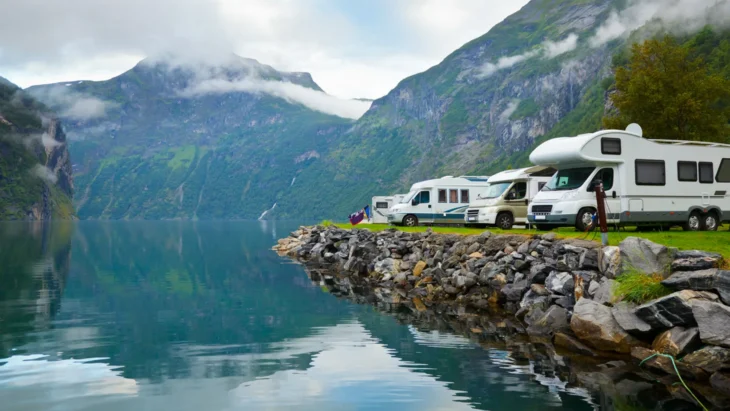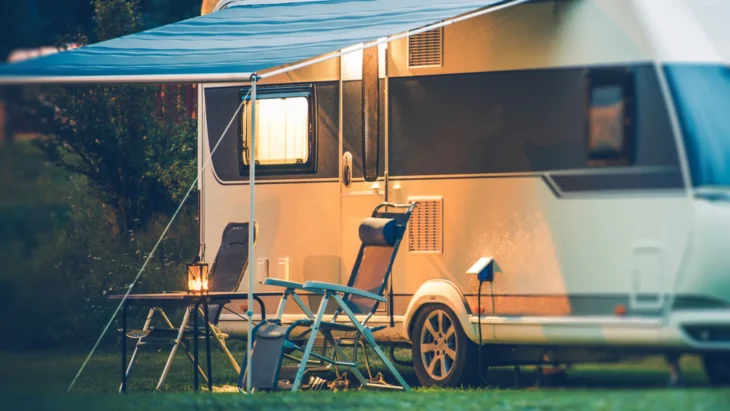You finally gave in to the call for a camping trip, and now you need to brace yourself for a new adventure: being able to bring your home with you to reach the destination. RV camping is a well-explored terrain that you can read more about on the CamperFront.com site.
Below is a helpful guide to shake off the beginner jitters and get you pumped up for the road (and the even better destination) ahead:

Source: pchoui.com
Contents
1. Get The Right RV That You Can Manage and Afford
There is a wide array of RVs that you can choose from that ranges from affordable to luxurious. Each has its own set of pros and cons you might want to consider.
Since the RV is not just your main transportation for the trip but is also your accommodation, selecting an RV with the essentials intact is critical.
Work within your budget but make sure that this is a vehicle that you can drive and maintain. Do a thorough check and even ask questions on how to troubleshoot it before renting one out.
Some RVs have solar power pre-installed, which can significantly help your need for electricity if your campsite doesn’t have it. Sometimes, these models might be a bit more expensive, but they provide a crucial element for your vacation to be more comfortable.
Additionally, you should account for the expenses for gas as part of the budget, so deciding which kind an RV uses should be carefully planned out.
2. Practice Driving
Driving an RV is not the same as driving a regular car. It needs some practice to be able to drive it or to handle towing a trailer. To be able to handle yourself the right way some additional training is great.
Remember when you first learned how to drive? This is the same, you can’t do it well from the get-go. No, it will take some time for you to gate accustomed to an RV. Driving it is a different beast, with a completely different feel compared to a regular car. RVs are bigger and heavier, and it behaves differently both on-road and off-road.
Going on a trip in an RV is all about having an adventure, but it’s also vital that you know how to make the right moves when behind the wheel.
Sometimes you’ll go out in nature, and you’ll have to make u-turns or hairpin turns, and this could be a massive issue if you don’t have hours of practice behind you. Things can get messy if you get stuck somewhere in mud, and you don’t know how to get out, because your experience with an RV is limited.
You know how they say: practice makes perfect. This is why you must spend hours behind a wheel of an RV before you go out on a serious camping trip.

Source: stellalevi.com
3. Select a Destination Meant for RV Camping
There are already campgrounds for RVs across the country and are up for listings online to lessen your worries.
Choosing a destination that already assures you that there is space, where you can park, charge, relax, and afford, is crucial as a beginner.
In the lists that you can find online, there is also a wide array of these campgrounds that can suit different budgets in the lists that you can find online. You can be assured that you won’t be alone when you get there, meaning that you can also get to share and learn from other RV campers.
This can be a good start for you as a beginner and can also be a refreshing community for those you will be taking with you on the trip.
4. Schedule Your Trip During Favorable Seasons
If you’re bound for a camping trip, and it is your first time to do so RV-style, it is best to plan it out in seasons where driving will be safer.
This means that you might want to schedule the trip during summer or spring, where there are lesser chances of rain and no dangers from winter snow.
Remember that you’re renting a vehicle that you’re just getting to know and that traversing through difficult driving conditions might not be the safest adventure you can think of.
Additionally, the added weight of what you’re bringing with you and the people you are carrying means that driving on regular routes is already a bit more challenging than regular, everyday commute driving.
However, also remember that these seasons are when most RV campers are also out. So, if you’re booking on a campground, make sure to call them ahead and reserve a slot for you. You don’t want to waste hours and money getting to a destination only for them to tell you that they’re fully booked.

Source: iStock.com
5. Map Out the Stops Along the Way
For RV camping trips, pit stops are necessary. Additionally, for every pit stop, don’t forget to check the condition of your RV.
As much as you and your companions might perceive pit stops as places to rest and explore, some of these stops might not necessarily be recreational.
It is vital to consider stops such as those requiring certain permits and, more so, toll gates. Get to know the road leading towards the destination to be assured that you’ll reach your goal and make it back home safely.
6. Ensure That Needs Are Within Reach
Whether it’s cellular data, potable water, portable toilets, waste disposal bins, or gas stations, you should ensure that whatever you will be needing (including your RV’s and your companions’) is accessible.
Creating a checklist for all of your essentials can be the first and most crucial step before starting this adventure.
Creating this list can also be the first (of hopefully, many) collaborative activities you can do with those who will be going with you.

Source: hgtv.com
7. Don’t Overpack
As our title suggests, these are tips for beginners. When you’re new to the activity, you want to do everything right. This is normal. Another thing that’s also normal is to overdo things in a situation like this.
When you get in an RV you’ll see that it has plenty of space, especially when compared to a regular car or a tent camping adventure when you need to carry everything in a backpack. But, while there’s plenty of space it is not unlimited. When you start packing up, you’ll see that there’s not an abundance of space and that you can’t take everything with you.
This is why you need to be careful and well-organized when packing. You can bring plenty of things, but keep your focus on necessities. When you’re a beginner in RV camping, there are two things you need to focus on. The length of the trip and the things you need with you. So, for starters don’t go on a long journey on your first trip, and don’t pack too many things inside of your RV.
For example, you don’t need an entire kitchen. Bring only a couple of knives, forks and spoons, a few plates, and some bowls. There’s no need to bring a setting for twelve. RV camping is about adventure and not about luxury.
This is why you need to focus on the basics, so you won’t make a mistake. Also, while not packing too much is a must, you shouldn’t also head out without some general supplies in the shape of water and food. And we’re not talking about the Guillermo del Toro film.
RV Camping for Beginners
There is nothing more exciting than your first RV camping trip, especially if this is something you’re genuinely interested in.
An adventure awaits you, so do come prepared and be expectant of surprises that can make this trip be extra memorable for you and for your companions.
Gear up. Gas up. Get on the road and go to where your RV takes you!
